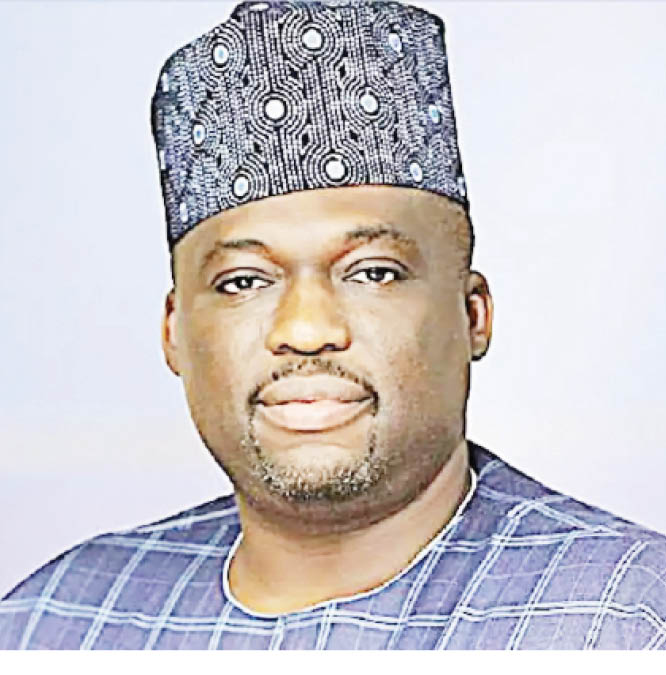Mr George Onafowokan is the Managing Director/Chief Executive Officer of Coleman Technical Industries Limited (CTIL), manufacturers of Coleman wires and cables in Nigeria. In this interview, he talked about the operations of the company, how it is coping with the economy and its short and long term projection. Excerpts:
You recently took over the mantle of leadership as chairman of the Manufacturers Association of Nigeria (MAN), Ogun State branch. What should operators in the sector look out for during your tenure?
- Call, data costs to double as FG invokes new telecom tax
- Vendor steals 21 JAMB applicants’ phones in Kwara
Taking over as MAN chairman in Ogun State is an honour because I am also from Ogun State. We see an opportunity in the state for the growth of industries. The state has been the capital of the industry base of what we have done so far and we see more coming up because we are actually the Gateway State and in terms of business, industries; it is a gateway to the whole country from Lagos, out of Lagos and in terms of land and access to the business it’s almost the best place to be in the country.
So for me, it’s about how we leverage the capacity that has been built so far and how we improve on it. What my own time is supposed to be is for us to generate and increase capacity in the state, bring more businesses to the state, encourage more manufacturing sectors to grow within the state and most importantly create the right business positive environment for us to grow.
The state is known as the capital of industry in Nigeria, we have one of the biggest industries here and the opportunity is massive in Ogun State. I am also an indigene of Ogun State, so for me, what I see is how to layer and increase the layer of good foundation that has been laid and improve the businesses in terms of the capacity building in the country, within the state, improve business relationships with the government and try to mitigate the circumstances that will put more risk to businesses, especially industries within the manufacturing sector in Ogun State. But I believe the long term and my own period being here is to create that increase from where we’ve got to so far and create a better relationship between the government and manufacturers within the state.
What influenced the company’s decision to expand from electric cables to fibre optic cables and what does this mean to Nigeria’s economy?
For every move we make, it is based on one simple premise, as I said earlier, we believe in localising production in Nigeria. Coleman has a philosophy of not importing anything, so we don’t import anything and we call it our Coleman challenge and that has allowed us to break barriers down in every other area of our cable manufacturing until this one.
There are about four other countries currently producing fibre optic cable. That means, in a continent of 54 countries or thereabout, why are not many people or countries actually investing in this production? It’s a more complex production, it’s very expensive, which means capital expenditure is high so it’s not the first thing you will jump into. That I think is one of the major barriers to it.
Nevertheless, for us it’s been an investment that’s huge, an investment that’s worth it because we have covered almost all areas of cable in the continent; now that was an area we needed to break the barriers of production within the country and we’ve been looking at the cable for five years and about two years ago, we were approached by the collaborative company, Corning Inc, one of the biggest in the world in terms of fibre that, we collaborate with it in terms of fibre production and we said look, we don’t need your equity, we are Nigerians that believe that we can raise the money with the support of the Development Bank and Bank of Industry.
We have been able to raise our own equity with their support and some of the banks like Wema Bank that supported us, we have also been able to deliver the project. Now, in terms of the benefits to the economy, it’s massive, because this is a country that has over 200million people, that is very IT savvy, that is data driven today, that the demand for data is massive in terms of the businesses, in terms of individuals that are needing data to run their daily lives.
But the deployment of data is still difficult because you need a lot of fibre deployment in this country and that is not happening at the pace that it should happen because we did not localise these things. Now, this has come up as an advantage because the deployment of digital currencies in Nigeria will be at a faster pace now for more reasons. The saving of foreign exchange is massive because now we are actually going to be making this. We expect to see a savings of FX demand by almost 40 – 50per percent because it can be demanding.
Secondly, in terms of where we see the major part of it, is the penetration of fibre, which will now lead to the increase in data availability and eventually the cost increase to the individuals. So, the more we can all deploy fibre around the country, which means deploying data across the country, the more volumes there are and the more volume there is, the more slightly the cost and price of data will continue to be driven downwards. So, there are so many benefits to this economy in terms of foreign exchange, individuals getting the benefits in terms of cost savings on data, deployment and carpet involved in data would also reduce.
So, producing fibre optic cables here in our country helps differentiate us from other countries in terms of data solutions and fibre solutions. It also gives us opportunities to go into the foreign sector. Our next phase is making it three times bigger than this and we will be making data solutions by the end of next year and for other countries, not only Nigeria, West African countries and we are expected to solve Central African countries as well.
How do you cope with piracy?
Piracy is a problem in this country, cable adulteration, cable copying, we’ve seen that and unfortunately, my own belief is that you need to fight piracy with capacity rather than just go heads on fighting piracy.
Now the problem with piracy is that it is money being made for exceptional profits. No pirate or criminal does anything for normal profit because if they do it for normal profit, they should as well be my distributor but they want exceptional profits, which means they need to cut quality.
Now, you have a problem with everything made in Nigeria but it’s good, but we have issues with people under-stating whatever the weight of the cable is or whatever the diameter of the cable is in order to just get away with more money.
So, when people think they are saving 10per cent or 20per cent money from a Coleman cable for another one that is cheaper, they are actually losing 40 – 50per cent of that cable. Let me give you an example, a 1.5mm diameter, which is the most commonly used cable board switches that we have, 1. 5mm square is actually 1.38mm diameter copper cable inside with insulation.
For the pirated or adulterated cable, 99per cent of them are less than 1.1mm in diameter. So, they have taken out about 20 to 30per cent of the material, even as much as sometimes missing 1mm, which means they have taken out as much as about 40per cent of the material but they will expand the PVC and put 4.5mm square while they sell the cable at 10per cent cheaper than the Nigerian cable. You have already lost 40per cent of the material and to make matters worse, they will even shorten the length of the cable.
The SON standard for cable cords in Nigeria is 100 metres, not plus or minus. If you like to put a 100 and plus, it cannot be less than 100meters. Nigerians will buy these cables cheaper but these cables are cut at 60meters. So, the guy has taken out 40per cent of the materials and taken out another 40per cent of the length of the cable. The profit is about 60-70per cent but he told you that his cable is 20per cent cheaper than the 100meters cable that is standard. You actually gained nothing; you have actually given the guy more money, which is a penny wise, pound foolish.

 Join Daily Trust WhatsApp Community For Quick Access To News and Happenings Around You.
Join Daily Trust WhatsApp Community For Quick Access To News and Happenings Around You.


